|
I am a mom. A mom in an intercultural family! A mom with a partner and 5 children + a big dog. A family where we speak 3 languages between us, but Not a single person of us can speak all the languages. That is my family, even though not all the children are biologically mine, but mentally they are mine and will always be. I also have a big dog now. It is funny how love has “given” me all these bonuses, because I never wanted many kids, and I am terrified of dogs. Anyway I am in love with my partner and I also got to a point where I appreciate my bonus dog. I see myself as the luckiest ever, to have all my kids. How I was brought up, it is normal to get none, one or two children. Not five!
0 Comments
For Mother's Day in Finland, I would like to share reflections and experiences about the maternity package and neuvola services in Finland. If you make a quick browse online, you will read that ” The maternity package (in Finnish: äitiyspakkaus,) known internationally as the Finnish "baby box," is a kit granted by the Finnish social security institution Kela, to all expectant or adoptive parents who live in Finland or are covered by the Finnish social security system. By neuvola services I refer in this blog to the prenatal care offered by public clinics of the Finnish healthcare system.
What is the paradox that I want to tell? International Workers' Day is meant to celebrate the fellowship between all workers, in Finland and worldwide. For this day, I would like to share my recent personal experience with attempting to change my career. I hope that my experience, and the tools I used to go through it, will strengthen and empower fellow workers, particularly from intercultural families, who struggle with their own work situations.
Throughout my life, I always wanted to be an academic researcher. Already when I finished elementary school, at the age of 12, I asked to write in the yearbook that my dream is to research history and foreign cultures. As soon as I could, I started my academic studies, first in Israel, then a Master’s in Helsinki and a PhD in Turku. We most likely all agree that good communication is one of the key factors to any successful relationship. Communication with our partner happens daily, whether it is verbally or non-verbally. We are in constant interaction with other people, especially in our romantic relationships. Now what happens if our ways to think, feel and speak are very different from out partner’s? What if we use words and expressions differently? What if our views, values, practices that are familiar to us seem contrary to the ones our partner has? Differences easily lead to misunderstandings, frustration, disconnection and conflict.
We currently live in a globalized, interconnected, multicultural world. Societies are shifting towards environments where people from different cultures, nationalities, languages, beliefs, and customs live together in one community. Increased intercultural contact is more likely, and therefore new social interactions are constantly settled.
Intercultural friendships represent a complex intimate intersection of different variables, aspects, and processes. They are unique in a way that individuals most surmount challenges such as overcoming stereotypes and negotiate cultural differences. On the other hand, intercultural friends can benefit from expanding cultural knowledge and broaden their perspectives.
Hello everybody! I’m Melis, a graphic designer from Istanbul, Turkey. I started volunteering for Familia last year soon after I joined the Finnish language course of the organization. I love how Familia supports and helps us to get to know about diverse families and cultures in Finland. I myself like Finnish culture and Finland a lot. Even though I only visited Helsinki once, It felt very welcoming with the multi-cultural structure and comfort that I saw in peoples face. I’m still learning a lot about Finnish culture; and hearing from the diverse people living in Finland, I understand more and more everyday. That’s why I feel very lucky to be a part of this community as a foreigner myself:)
Moving from the Cross-cultural to the Intercultural - Finding your identity through language(s)1/1/2023 “But what is your native language?”The Problem With LanguageFighting Assigned Identity
Building intercultural Christmas traditions: our personalized blended Finnish-Nicaraguan Christmas22/12/2022 It is holiday season, and this time of the year is a perfect occasion to put into practice the intercultural richness of our family. My husband is from Finland, and I am from Nicaragua. Together we are raising a trilingual 4-year-old girl who has big expectations for Christmas. But how do we reconcile two cultures in a festive tone? Christmas is not always nice and fun, but this blog is a photography of our life situation in December 2022, and if you relate to it, you might also be in an intercultural family.
Christmas started early with a generous amount of snow that fell and never went away. Back home there is no snow ever, so I find amusing to see my daughter play and eat the snow that announces that Christmas is near. A Christmas calendar with little chocolates to open day by day is a new experience for me: this time my daughter chose herself the type of calendar she wanted to have. Our family playlist includes songs such as “El burrito Sabanero”, “Last Christmas” and “Tonttujen jouluyö Tip Tap (Soihdut sammuu)”. My daughter makes her own version of the lyrics in Spanish, Finnish and English, mixing all the songs. Yes, Christmas carols are part of our repertoire and that is where things get a bit intercultural. Have you heard about children's rights on November20th? No? Then let me tell you a little about it! Their very origins go back to the US in 1857, from a pastor who appreciated children a lot, and facilitated the first “rose day”. This tradition later changed to children's day. In December 1954, the United Nations General Assembly invited all countries of the world to establish the Children’s Day, to make the rights of children visible, to exchange and promote understanding towards children, the need of their welfare, and start actions to promote the vision and goals of the UN Charter. In Familia, one of the many things we do to honor this day is promoting the rights of multilingual families and their children. My personal experience is like this too. The first time we applied for my child, there were not enough children to form a group in our municipality, so we were just informed about it and left alone without another solution. Picture: Our empty room when we arrived in Helsinki This year the world mental health day falls on the 10.10.22 and the theme is “Make mental health and well-being a priority for all”. What does it mean to all of us, especially intercultural families who have challenges integrating to a new society? Mental health issues are on the rise especially during and after the Covid-19 pandemic crisis which affected many people globally where they had to be confined to homes, lost their main source of incomes, lost their loved ones and a complete shutdown in their everyday lives. When Covid-19 struck, we had to learn to fast track to deal with mental health and wellbeing issues all of a sudden , unprepared like a bunch of kindergarten children on the first day of school. I am no exception to them. Here is my transition story moving from a big city, Kuala Lumpur to a quiet town of Sipoo, 30 km east of Helsinki a year ago. I come from an intercultural family where my Finnish husband speaks Swedish and Finnish; and on my side, my mother tongue is Cantonese and I learned Bahasa Malay, English and Mandarin in my formative school years. Our common household language is English with our children. I am lucky to be able to access to support groups and intercultural family groups here like Familia or Spouse Program to share my woes and lament unlike back home in Malaysia. For example, Familia has given me a place or platform to share my thoughts and mix with other intercultural families who may be going through what I went through in life situations such as the severeness of digital exclusion, seeking employments, choice of children’s education development or discriminatory actions of certain groups of minority. |
blogi - blogAjatuksia ja kokemuksia elämästä kahden kulttuurin keskellä.
Reflections and experiences from the life of intercultural families. kategoriat
All
osallistuToivotamme sinut lämpimästi tervetulleeksi osallistumaan blogiyhteisöömme: lue, kommentoi ja kirjoita!
Kirjoittajina voivat toimia kaikki kahden kulttuurin arkea elävät ja aiheesta kiinnostuneet. Kynnystä kirjoittamiselle ei tule nostaa liian korkealle ja kirjoittaa voi joko omalla nimellä tai nimimerkillä. Blogissa esitetyt näkökannat ja mielipiteet ovat kirjoittajien omia, eivätkä edusta Familian kantaa. Kahden kulttuurin arki on itsessään kiinnostavaa ja siitä kirjoittaminen voi avata myös itselle uusia näkökulmia! Blogikirjoituksia voi tarjota sähköpostitse (info@ familiary.fi) tai yhteydenottolomakkeen kautta. Lopullisen valinnan julkaistavista jutuista tekee Familian henkilökunta. Tervetuloa mukaan! participate!We warmly welcome you to participate in our blog community: read, comment, and write!
Anyone who lives and works in the world of intercultural families and is interested in the topic is welcome to contribute. The threshold for writing should not be too high, and you can write either under your own name or under a pseudonym. Keep in mind that the views and opinions expressed in the blog are those of the authors and do not represent the position of Familia. The everyday life of intercultural families is interesting and writing about it can also open new perspectives for you! Your story matters and helps to raise awareness about the opportunities and challenges within intercultural families. Blog contributions can be submitted by e-mail (info@ familiary.fi) or via our contact form. Final selection and edition of the stories to be published will be conducted by our staff. Welcome to join us! |
|
|
© Familia 2024

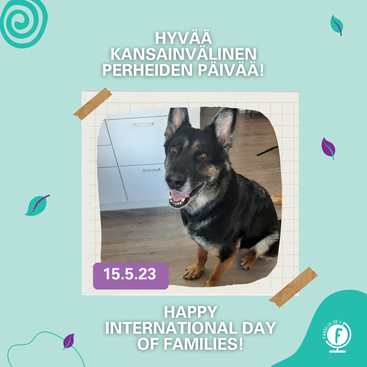

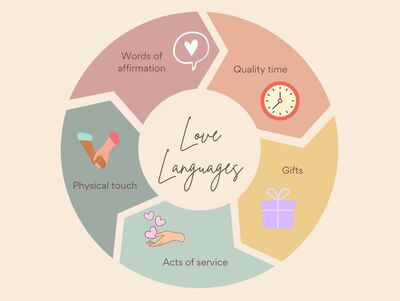
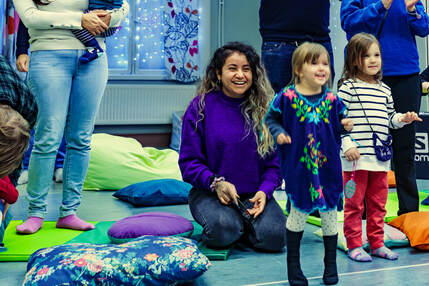
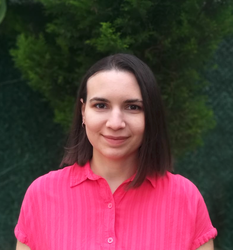
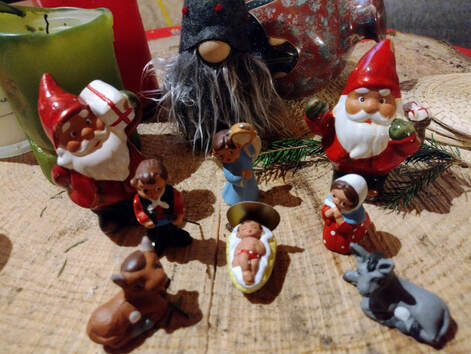
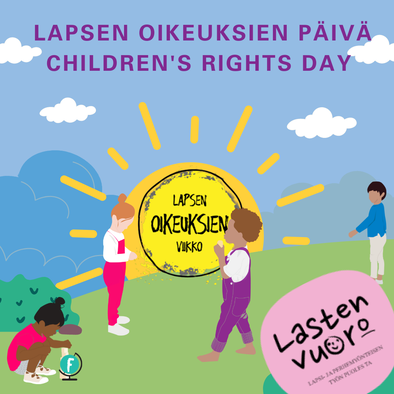
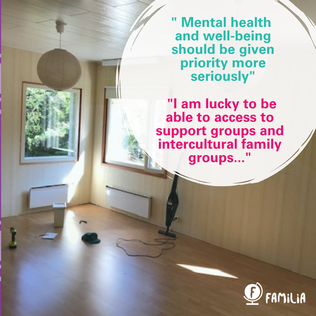
 RSS Feed
RSS Feed

